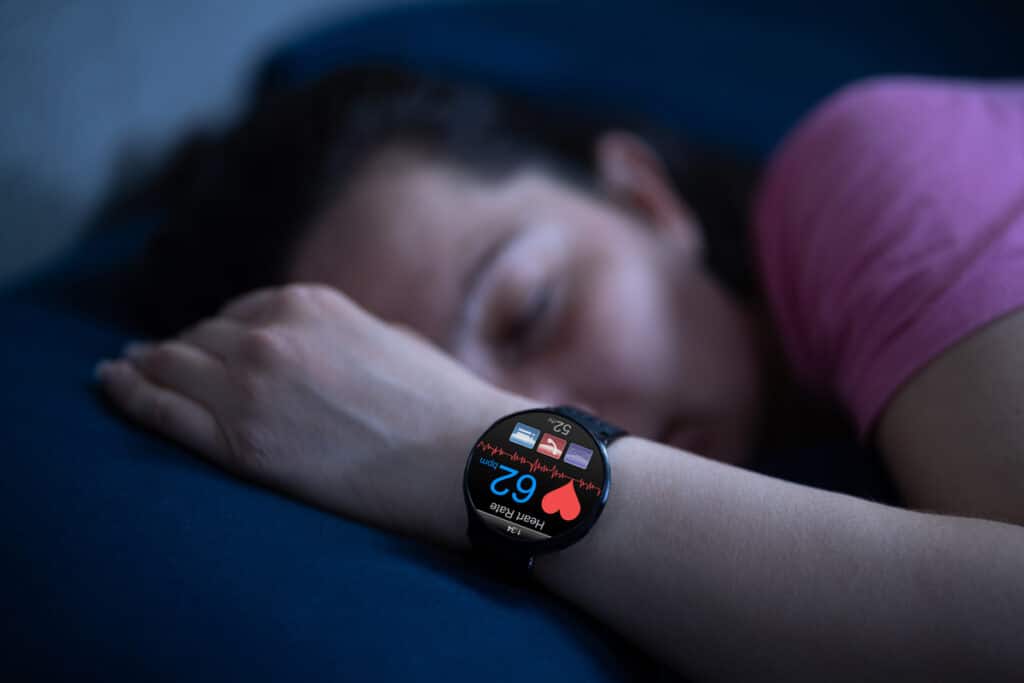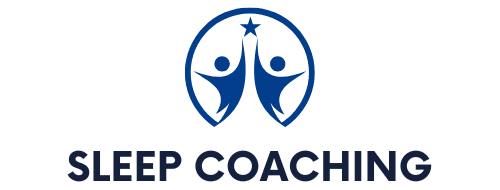Sleep has fascinated humans for ages. Have you ever wondered how sleep coaching began and transformed into a professional career?
This journey takes us from ancient rituals and communal rest to today’s personalized sleep guidance. People once relied on folklore and tradition to find rest, often turning to shamans or healers. Fast forward to now, sleep coaches use science and practical techniques to help others sleep better.
In this post, we’ll explore how sleep coaching evolved and what it means in our modern lives. Whether you’re struggling to catch some Z’s or curious about this unique profession, you’ll find insights and interesting anecdotes that reveal the rich history of sleep coaching. Get cozy and let’s dive into the fascinating world of sleep guidance!

Ancient Sleep Practices
Sleep practices have varied greatly through the ages, shaped by cultural beliefs and spiritual views. Ancient societies approached sleep not just as a physical need but as a gateway to something greater. Their understandings of sleep were often intertwined with health, philosophy, and spirituality. Let’s explore some notable ancient cultures and their unique perspectives on sleep.
Sleep in Ancient Egypt
The ancient Egyptians regarded sleep as a sacred state. They believed that sleep was a bridge to the divine, connecting the physical world with the spiritual realm. Pharaohs often saw sleep as an opportunity to communicate with gods through dreams.
Here’s how they approached sleep:
- Dream Interpretation: Egyptians placed high importance on dreams. They had priests who specialized in interpreting dreams, believing they carried messages from the gods.
- Sleep Spaces: The design of sleep spaces was intentional. They filled their rooms with calming scents and placed symbols of protection, like statues of deities, to ward off negative energies.
- Ceremonies and Rituals: Bedtime was often accompanied by specific rituals, including reciting prayers or chants, reinforcing the spiritual significance of rest.
Greek and Roman Influences
Greek and Roman philosophers shared their thoughts on sleep, influencing future generations. Their insights laid the groundwork for understanding sleep’s role in well-being.
- Aristotle’s View: Aristotle believed that sleep was essential for health. He thought it was a time for the body to rejuvenate and restore balance. He also explored the role of dreams, suggesting they could reflect the dreamer’s thoughts and experiences.
- Sleep Deities: The Greeks worshipped Hypnos, the god of sleep, viewing him as a guardian of sleepiness. Romans, influenced by Greek tradition, honored Somnus, further entwining sleep with mythology.
- Health and Sleep: These cultures acknowledged that disturbed sleep could lead to various ailments. They emphasized balance in lifestyle, which included adequate sleep.
Traditional Chinese Medicine
In ancient China, sleep was closely linked to health, making it a vital aspect of Traditional Chinese Medicine (TCM).
- Yin and Yang Balance: TCM viewed sleep as essential for maintaining balance between yin (the nourishing energy) and yang (the active energy). Good sleep was seen as a sign of health and harmony.
- Qi Flow: Practitioners believed that sleep allowed energy, or Qi, to flow freely. Good sleep was essential for physical and mental well-being, allowing the body to heal and rejuvenate.
- Herbal Remedies: Ancient Chinese techniques included herbal remedies to promote restful sleep. Ingredients like chamomile and valerian root were commonly used to help calm the mind and body before sleep.
Further insights on sleep in Traditional Chinese Medicine can be found in this video by Danny Blyth:
These ancient practices laid the foundation for how we view sleep today. Even as our understanding of sleep has evolved, the spiritual and philosophical roots of these practices continue to influence modern approaches to sleep coaching and wellness.
The Birth of Modern Sleep Coaching
As society advanced, so did our approach to sleep. The 20th century brought about significant changes in how we understood sleep, leading to the rise of modern sleep coaching. This section outlines key developments that defined this transformation.
Early Sleep Research
The quest to understand sleep began in earnest during the mid-20th century. Pioneering studies revolutionized our perception of sleep patterns and disorders.
- Sleep Stages: Researchers like Nathaniel Kleitman studied sleep cycles and discovered rapid eye movement (REM) sleep. This finding changed how we view sleep, revealing it as a dynamic process.
- Polysomnography: The introduction of sleep studies was a game changer. By monitoring brain waves, heart rate, and breathing, doctors could diagnose sleep disorders accurately.
- Sleep and Health: Studies linked poor sleep with health issues like obesity and cardiovascular problems. This connection raised awareness about the necessity of good sleep habits.
These findings set the stage for sleep coaching. As we learned more about sleep’s impact on health, the need for guidance became clear.
Sleep Disorders and Treatments
The rise of sleep coaching coincided with an increase in sleep disorders. Sleep issues like insomnia and sleep apnea became more common, prompting a response from medical professionals.
- Increased Awareness: As people struggled with sleep, discussions about sleep hygiene began to emerge. This led to a growing interest in finding solutions outside of medication.
- Coaching as Support: Trained coaches started to offer personalized guidance, using techniques drawn from behavioral therapy and lifestyle changes. They aimed to help individuals improve their sleeping conditions.
- Holistic Approaches: Coaches began incorporating practices like mindfulness and relaxation techniques. These methods addressed the psychological aspects of sleep, creating a more rounded approach to sleep health.
The emergence of sleep coaching was a direct response to the increasing complexity of sleep disorders. Coaches became an accessible resource for those seeking relief.
The Role of Therapists
As sleep concerns became more prevalent, therapists recognized the profound impact of sleep on overall well-being, including its role in mental health, emotional resilience, and cognitive function.

- Integration in Practices: Many therapists began to incorporate sleep coaching into their practice, seeing it as a valuable tool for mental health. They understood that better sleep can lead to improved mood and cognitive function.
- Collaboration with Sleep Coaches: Professionals from various fields collaborated more closely. As sleep coaches and therapists worked together, they created more comprehensive treatment plans for individuals experiencing sleep-related issues.
- Training and Credentialing: With the rise of sleep coaching, training programs emerged. Therapists began to pursue additional certifications in sleep coaching, enhancing their ability to help clients.
Therapists’ involvement highlighted the importance of addressing sleep issues. This collaboration transformed sleep coaching into a recognized profession dedicated to helping others find rest.
The Rise of Sleep Coaches Today
Sleep coaches have quickly gained traction in recent years. As more people struggle with sleep issues, a spotlight has fallen on this profession. Coaches now guide individuals toward better sleep habits, using both science and personal touch. Whether your insomnia keeps you tossing and turning or you’re just looking to enhance your sleep quality, the advice of a sleep coach may be just what you need.
Training and Certification
Many paths lead to becoming a certified sleep coach. Training programs focus on science-backed methods, sleep disorders, and practical coaching skills. Here are some common options:
- Online Courses: Numerous reputable platforms offer courses on sleep science and coaching techniques. These can be completed at your own pace, making them accessible.
- Workshops and Seminars: In-person events can provide hands-on experience. These often involve role-playing scenarios to practice real-life coaching.
- Certification Programs: Some organizations offer certification specifically for sleep coaching. Completing these programs can enhance credibility and professional standing.
For example, this video highlights a certification program designed to equip sleep coaches with the knowledge and tools they need to succeed in the field:
Once certified, sleep coaches are ready to help clients with tailored strategies to improve their sleep.
Common Techniques Used
Sleep coaches use various methods to assist their clients. Here’s a selection of popular techniques:
- Sleep Hygiene Education: Coaches teach clients the importance of a consistent sleep schedule, a calming bedtime routine, and a sleep-friendly environment.
- Cognitive Behavioral Therapy for Insomnia (CBT-I): This method addresses negative thought patterns related to sleep, helping clients reframe their approach to rest.
- Relaxation Techniques: Coaches often guide clients in mindfulness and breathing exercises to reduce anxiety and promote relaxation.
- Lifestyle Adjustments: Suggestions may include dietary changes, exercise habits, and limiting screen time, all aimed at better sleep.
These techniques encourage clients to take an active role in improving their sleep.
The Impact of Technology
Technology is reshaping sleep coaching as well. Sleep apps and gadgets are on the rise, providing new resources for both coaches and clients.

- Sleep Tracking Apps: These tools help users monitor their sleep patterns, offering insights into their rest quality. Coaches can use this data to tailor advice.
- Wearable Devices: Gadgets like fitness trackers not only track activity but also provide sleep data. This information can help identify sleep disturbances.
- Online Support Groups: Many sleep coaches facilitate virtual communities where clients share experiences and tips, fostering a sense of accountability and support.
Technology makes it easier than ever to gain insight into sleep habits. Access to information strengthens the coaching relationship and empowers clients on their journey to better rest.
Sleep coaching is now a respected profession, helping countless individuals reclaim their nights. With the right education, techniques, and support, anyone can improve their sleep quality and enhance their overall well-being.
Future of Sleep Coaching
The future of sleep coaching is bright and buzzing with innovation. As we learn more about sleep, the coaching profession is set to grow and adapt. From technology integration to evolving client needs, this field is transforming. Let’s take a look at what’s on the horizon for sleep coaching.
Emerging Trends
Several trends are surfacing that could reshape sleep coaching. Here’s what to keep an eye on:
- Personalized Plans: Coaches will increasingly offer personalized sleep solutions based on individual needs. One-size-fits-all approaches will become a thing of the past.
- Telehealth Integration: Virtual coaching sessions will likely become more common. This offers flexibility and access for clients seeking help from anywhere.
- Wearable Tech: The use of sleep-tracking devices will continue to rise. Coaches will use data from these devices to provide tailored guidance.
- Focus on Mental Health: Sleep is crucial for mental wellness, and coaches will adopt more holistic approaches. Expect coaching to include mental health resources and support.
- Corporate Wellness Programs: Companies will invest more in employee sleep coaching. This can lead to increased productivity and happier workers.
These trends show that sleep coaching is evolving with the times, catering to diverse needs.
Sleep Coaching in Different Countries
Sleep coaching is not just a phenomenon in one part of the world. Different countries view and approach sleep coaching uniquely. Here’s a snapshot of global perspectives:

- United States: Sleep coaching is gaining popularity, particularly in wellness circles. There is a strong focus on evidence-based methods, combining psychology with sleep science.
- Japan: Napping is deeply embedded in Japanese culture. “Inemuri” is the practice of napping in public, emphasizing the importance of rest. Coaches here might focus on nap optimization.
- United Kingdom: The UK sees sleep coaching as part of overall health and wellness. Coaches often integrate lifestyle changes and mental health education into their programs.
- Australia: Australian coaches are increasingly working with Indigenous knowledge. They emphasize natural sleep techniques and respect for connection with nature.
- Scandinavia: Countries like Sweden and Norway promote work-life balance. Sleep coaches here may focus on managing stress and creating healthy sleep environments.
These varied perspectives highlight the global reach of sleep coaching. Different backgrounds bring unique insights to the profession. As sleep coaching expands, its adaptability to cultural differences will play a crucial role in its success.
Conclusion
The journey of sleep coaching shows how our understanding of sleep has transformed from ancient rituals to professional careers. As science and personal experiences merge, sleep coaches now offer practical solutions to improve sleep quality. Their expertise is invaluable for anyone struggling with sleep issues or simply seeking better rest.
With emerging trends and global perspectives, the future is bright for this profession. If you’ve been searching for guidance, consider exploring the benefits of a sleep coach. Better sleep is within your reach; take the first step toward more restful nights today!
Stone Evans, Founder of SleepCoaching.com
Stone Evans is the founder of SleepCoaching.com which has become one of the most popular destinations online for people seeking better sleep. Stone started developing this website after realizing his own sleep struggles and then beginning an intensive period of study (which included professional sleep coach training) and ongoing lifestyle changes to improve and optimize his sleep.
Now through in-depth articles from sleep experts around the world, the internet's leading and most comprehensive sleep coaching directory, quantitative sleep product reviews and Stone's personal daily sleep tracking journey, visitors to our website regularly report gaining information and insights that are helping them achieve better health, better sleep and a better quality of life.





Stone Evans’ exploration of the evolution of sleep coaching is both insightful and thought-provoking. The journey from ancient rituals to modern professions reveals the profound significance of sleep throughout human history.
Highlighting ancient Egyptian practices, where sleep was considered a divine bridge, and Traditional Chinese Medicine’s emphasis on yin-yang balance, the post reminds us of how deeply rooted sleep is in cultural and spiritual traditions.
The transition into modern sleep science, with groundbreaking research into REM sleep and the development of polysomnography, demonstrates how far we’ve come in understanding sleep as a biological and psychological process. Evans’ discussion of current sleep coaching techniques, including cognitive behavioral therapy for insomnia (CBT-I) and the integration of wearable technology, underscores how this profession blends traditional wisdom with cutting-edge science.
The emphasis on personalization and holistic approaches shows promise for the future of sleep coaching. This post is an engaging call to action, encouraging readers to view sleep not just as a necessity but as a cornerstone of overall wellness, worth exploring with expert guidance.
The evolution of sleep coaching is a fascinating journey that highlights the growing recognition of sleep’s critical role in overall health. As someone who has struggled with sleep issues, I appreciate the shift from generic advice to personalized coaching. This personalized approach acknowledges that each individual’s sleep needs and challenges are unique, making the guidance more effective and relevant.
The integration of technology, such as sleep tracking apps and wearable devices, has revolutionized how we understand and improve our sleep patterns. These tools provide valuable data that can be analyzed to identify specific issues and track progress over time. It’s intriguing to see how sleep coaches now use data-driven insights to tailor their recommendations, offering a more scientific and precise approach to improving sleep quality.
With the increasing complexity of modern life, do you think sleep coaching will continue to evolve, perhaps incorporating AI to provide even more personalized and effective solutions? The potential for AI to analyze vast amounts of sleep data and predict patterns could lead to even more customized and proactive sleep coaching strategies. Additionally, the use of AI could help in identifying underlying health issues that may be affecting sleep, providing a more holistic approach to sleep health.
Overall, the advancements in sleep coaching reflect a broader trend towards personalized health and wellness solutions, recognizing the importance of tailored approaches in achieving optimal outcomes.
What a fascinating exploration of sleep coaching and its evolution!
I really appreciated how this article traced the journey from ancient practices to modern science-backed techniques—it’s amazing to see how cultural traditions around sleep still influence the field today.
The connection between ancient rituals, like dream interpretation in Egypt or balance-focused approaches in Traditional Chinese Medicine, and today’s emphasis on mindfulness and sleep hygiene was especially eye-opening.
I’m curious—do you think we’re seeing a resurgence of interest in those ancient practices, especially as people explore holistic approaches like herbal remedies, meditation, and energy healing alongside modern sleep science?
It seems like today’s sleep coaches often combine both worlds, blending technology with natural remedies to create well-rounded solutions.
Also, I loved the section about technology shaping the future of sleep coaching, particularly wearable devices and sleep-tracking apps.
Do you think there’s a risk of people becoming overly reliant on these gadgets, potentially adding to sleep anxiety rather than relieving it?
Or do you see them more as helpful tools when paired with professional guidance?
Another question that stood out to me—how do cultural differences shape sleep coaching methods around the world?
It would be fascinating to hear more examples of how traditions like Japan’s “inemuri” or Australia’s connection to nature might influence coaching approaches today.
Could these regional insights help us adopt more diverse and inclusive strategies?
Finally, I’d love to know what readers think about the growing role of corporate wellness programs that incorporate sleep coaching.
Are businesses starting to recognize the value of sleep for productivity and well-being?
And how do you see sleep coaches adapting their services for workplace settings?
This article raises so many interesting questions about how we approach rest in a modern, fast-paced world.
Thanks for such a thorough and thought-provoking look at sleep coaching.
Reading this article, it reminded me of my late mom, a traditional healer, and midwife. I feel like modern midwives have to learn from the traditional practitioners because they know what the modern ones don’t. In the same way, Your article reminds us of the ancient practices that are helpful instead of being harmful, especially for your topic on sleeping.
Keep writing. I love it.
John from South Sudan
This article provides a compelling journey through the history and evolution of sleep coaching, highlighting its deep roots in ancient practices and its modern transformation into a professional field. Stone Evans does an excellent job of weaving together cultural insights, scientific advancements, and practical techniques to show how sleep coaching addresses a universal need for better rest.
The inclusion of global perspectives and emerging trends enriches the discussion, showcasing the adaptability and relevance of this growing profession. It’s an informative read for anyone curious about the intersection of wellness, history, and the science of sleep.
Really enjoyed your deep dive into the evolution of sleep coaching! It’s fascinating to see how ancient practices have influenced modern approaches.
I particularly found the section on ancient Egyptian sleep rituals intriguing. It’s amazing how much emphasis they placed on dreams and the spiritual aspects of sleep. I’ve always been curious about how different cultures view sleep. Thanks for shedding light on this!